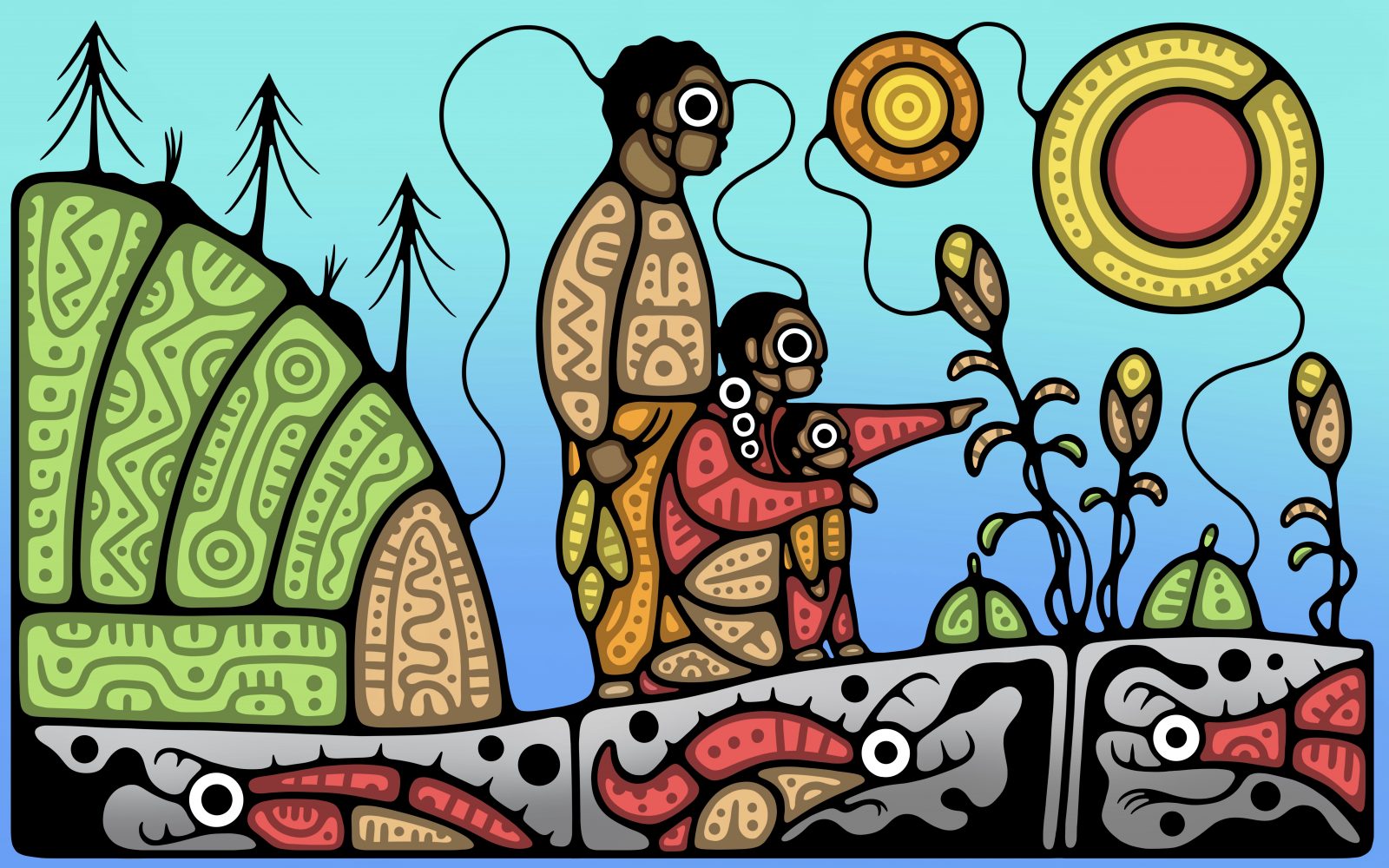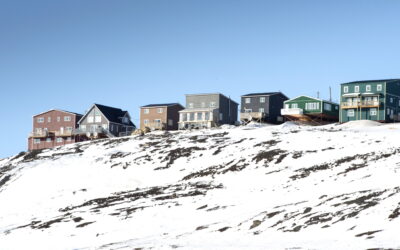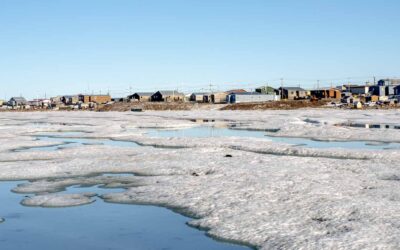June 16, 2025 | TORONTO—New research released today highlights Indigenous perspectives on building a cleaner economy and addressing climate change policies in communities across the country.
The research includes five original case studies from Indigenous scholars and authors, presented by the Canadian Climate Institute and the Centre for Indigenous Environmental Resources (CIER) as part of the Indigenous Perspectives program. Now in its fifth year, the annual program profiles Indigenous expertise and solutions in responding to climate change and clean energy issues.
This year’s case studies focus on:
- Why Indigenous-inclusive electricity transmission projects are essential to unlocking Canada’s renewable energy potential (authors Frank Busch, Joel Krupa, and Kevin Hanna)
- How First Nations are uniquely positioned to achieve energy sovereignty while solving energy security for all New Brunswickers (authors Kevin Woods, Tracy Primeau, and Claire Harris)
- Why Anishnabe governance is essential to restoring healthy moose populations and a healthy climate (authors Shannon Chief and Jaimie Vincent)
- How Indigenous economic ecosystems are essential for climate adaptation and fisheries management (authors Tasha Brooks and Leighton Gall)
- How the Friends of The Attawapiskat River are working to ensure Indigenous communities, lands, water, and culture are protected in the Ring of Fire region (authors Michel Koostachin, Rick Cheechoo, and Kerrie Blaise)
Case study authors will discuss their work in two online roundtables happening on June 18 and 19. The first gathering will focus on how Indigenous governance and worldviews are essential to climate policies. The second will highlight the potential of expanded Indigenous participation in the development, delivery, and security of clean electricity.
Register now to attend the 2025 Indigenous Perspectives roundtables on June 18 and 19, or read this year’s case studies online.
ABOUT THE INDIGENOUS PERSPECTIVES PROGRAM
Since 2020, the Canadian Climate Institute and Centre for Indigenous Environmental Resources have collaboratively led the Indigenous Perspectives program to centre Indigenous-led research in climate policy and amplify Indigenous perspectives on solutions, barriers, and lessons learned about addressing climate change and participating in the global energy transition. The program aims to advance and support the Truth and Reconciliation Calls to Action and the implementation of the United Nations Declaration on the Rights of Indigenous People.
The case studies explore a wide range of issues, recognizing the diversity of Indigenous perspectives in Canada. Featured case studies are selected through a competitive application process, and developed and presented through research funding and mentorship support from the presenting organizations. Program participants retain full ownership of their research, conclusions, and materials published, and the views and policy recommendations presented reflect the research and conclusions of the individual case study authors.
QUOTES
“Indigenous perspectives and research are a critical part of effective climate action and economic decision-making that affects all Canadians. We’re thrilled to be celebrating five years of working with the Centre for Indigenous Environmental Resources to amplify Indigenous knowledge, research, and leadership on critical climate-related issues.”
— Rick Smith, President, Canadian Climate Institute
“These new Indigenous Perspectives case studies have important implications for people, ecosystems, and policy across Canada—from energy security in New Brunswick to adaptive strategies for community-centered commercial fisheries in British Columbia. Anyone who is focused on climate mitigation, adaptation, and the transition to a clean economy can benefit from learning from the authors who have led this research.”
— Maria Shallard, Director, Indigenous Research, Canadian Climate Institute
“The voices for Indigenous-led climate policy recommendations need to be heard. Much like the drum carries medicines to all that hear its song, the Indigenous Perspectives case studies carry messages of hope for a more sustainable future that respects culture, language, knowledge, and the spirit of collaboration.”
— Shianne McKay, Senior Project Manager, CIER
RESOURCES
- Case Study | Unlocking Canada’s stranded renewable energies
- Case Study | Exploring Indigenous-led distributed energy systems in New Brunswick
- Case Study | Moose protection and Anishnabe governance as climate policy
- Case Study | Navigating climate change in the Indigenous economic ecosystem
- Case Study | Protecting Treaty 9 Lands and Waters
- Event Registration | Indigenous Ways of Knowing as Climate Policy (June 18)
- Event Registration | Indigenous Power as the Pathway to Clean Electricity (June 19)
CONTACT
To arrange an interview with the Institute or CIER about the Indigenous Perspectives program, or to speak with the authors of this year’s case studies, please contact:
Claudine Brulé (Eastern Time)
Lead, Communications and External Affairs
Canadian Climate Institute
(226) 212-9883
Krystal Northey (Pacific Time)
Public Affairs Lead
Canadian Climate Institute
(250)-818-3748
About the Canadian Climate Institute
The Canadian Climate Institute is Canada’s leading climate change policy research organization. The Institute produces rigorous analysis, economic modelling, and in-depth research focused on incentivizing clean economic growth and low-carbon competitiveness, reducing emissions and accelerating Canada’s net zero energy transition, and making our economy and infrastructure more resilient to a warming climate.
climateinstitute.ca
About the Centre for Indigenous Environmental Resources
Centre for Indigenous Environmental Resources (CIER) is a national Indigenous-led charitable organization that embraces diversity and collaboration for capacity building with Indigenous Nations to strengthen and support sustainable communities and a healthy environment.
yourcier.org



